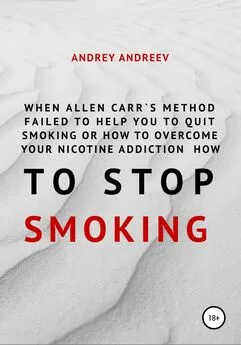Steve Andreas - Help with Negative Self–talk Volume I
- Название:Help with Negative Self–talk Volume I
- Автор:
- Жанр:
- Издательство:Real People Press
- Год:2009
- Город:Boulder
- ISBN:нет данных
- Рейтинг:
- Избранное:Добавить в избранное
-
Отзывы:
-
Ваша оценка:
Steve Andreas - Help with Negative Self–talk Volume I краткое содержание
Negative self-talk makes people feel bad. These bad feelings are the trigger for a huge variety of problems and difficulties, including...
Most eating disorders, Alcohol and other substance abuse and addictions, Anxiety and panic disorder, Anger and violence, Depression, Procrastination, Self-confidence & self-esteem issues
...the list goes on and on.
Often the people who suffer from these problems don’t realize that they are caused by inner critics, internalized parents, and other troublesome inner voices because they are so focused on the horrible feelings that result from them. Sometimes this negative self-talk is playing constantly in the background, like a song stuck on repeat!
It is very difficult to directly change an unpleasant emotion, but often quite easy to change an inner voice. When the voice changes, the feelings usually change with it, allowing for a more resourceful response to life's challenges.
By learning how you talk to yourself, you can easily learn new and more helpful ways to do so.
Help with Negative Self–talk Volume I - читать онлайн бесплатно полную версию (весь текст целиком)
Интервал:
Закладка:
A well–specified outcome will work effortlessly and unconsciously, while avoiding possible objections, hesitations, and obstacles. To be well–formed, an outcome has to satisfy certain conditions. One of the main conditions is that it does not prevent or interfere with other desires or outcomes that you have.
The first thing to realize is that every change — no matter how wonderful it is — will result in some loss. That loss may be trivial, or it may be vitally important to you, but there will always be a "down side." For instance, if you move to a much nicer home, that change in location may mean that you are farther from a favorite delicatessen, or closer to a noisy freeway, or it may mean that you are continually worried or stressed by a much larger financial obligation. Knowing that there will always be a "down side" to every change can alert you to search for what it is, so that you can examine it carefully in advance and not be surprised later. Once you have examined the consequences, you can either be prepared for them, or change your outcome to avoid them.
There are a number of other criteria for an outcome that will be achievable and satisfying. You can use the questions and statements in the outline below to examine any outcome that you have. If you are doing this with someone else, ask them the questions in italics. Continue to ask each question until you are satisfied that they have answered it fully, and that you know exactly what they mean. In the following, I will use the desire to speak publicly to a group as an example of an outcome.
1. Desired state
a) "What do you want?" "I want to speak in public without choking up and forgetting what I want to say."
b) "Is it stated in positive terms?" — what you do want, not what you don't want. "I want to feel comfortable speaking in public, easily able to recall what I want to say."
c) "Is this initiated and controlled by you?" — No magic intervention by someone else or something else that is out of your control, like winning the lottery. "No matter what the situation, I'll be able to maintain a comfortable state, as if I were speaking to a friend, or a small group of friends."
d) "Give me a specific sensory–based description, and/or a behavioral demonstration of what you want" Specify it so that someone else would know exactly what you want. "I want to feel just like I am now while speaking to you. I'll be breathing normally, feeling alert and able to remember what I want to say, and speak clearly and convincingly." (A sensory–based description will be a criterion for all the other conditions listed below.)
e) Appropriate scope. "Give me an example of what you want" I want to feel comfortable when speaking in sales meetings of about 10 people." (not "I want to be comfortable in all situations.")
f) Meta–outcome (see below). "When you have that, what will that do/get for you?" I'll have the satisfaction of making my views known to others, and be able to affect the group process in useful ways."
2. Evidence
a) "How will you know when you have it? What specific evidence will let you know that you have achieved it?" "I'll be able to feel comfortable, easily recall what I want to say, and speak clearly."
b) Appropriate and timely feedback. "What specific evidence will let you know that you are making progress toward your goal?" "I'll see the other people attending to what I say, and their questions will indicate that they have understood what I said."
3. Context
a) "Where, when, and with whom do you want it?" "I also want to be able to present information to a larger group of a hundred of my colleagues at national conferences."
b) "What specific sensory–based cues will trigger the new behavior or state?" "When I realize it is time to speak, and I see all those faces turn to look at me expectantly."
4. "Ecology (Congruence)"How will your desired outcome affect other aspects ofyour life, either positively or negatively? Does any part ofyou have any objection to your having this outcome?" "If I were able to do this, my boss might ask me to travel to more conferences, and be away from my family more, which I wouldn't like," etc. Either:
a) Limit the outcome to the appropriate contexts, or
b) Revise the outcome so that it is appropriate in a wider range of different contexts, or
c) Teach behavioral competence to deal successfully with the undesired consequences. (In the example above, the ability to politely and respectfully refuse the boss' request to travel more would be an example of #3.
5. Blocks"What stops you from having your desired outcome already?" "I get nervous, and that makes my hands shake and my voice quaver, and I sometimes forget what I want to say," etc.
6. Existing Resources"What resources do you already have that will support getting your outcome?" "I feel comfortable speaking to you, and to small groups of friends, where I have no difficulty remembering what I want to say, so I know that I'm able to do it," etc.
7. Additional Resources"What other resources do you need in order to get your outcome?" "I need to learn how to feel comfortable in larger groups, and to find some way to remind me of what I want to say, as a backup in case I lose my train of thought," etc.
8. Steps
a) Path. "How are you going to get there?" "I'll start practicing in very small groups of two or three people, and I'll imagine that they are all close friends."
b) Alternatives. "Do you have more than one way to get there?" (The more alternatives the better.) "I can also start by giving little talks to my kids about dinosaurs, or by presenting accounting figures to the PTA," etc.
c) Chunking. "Is the first step specified and achievable? How about subsequent steps?" "I can sign up for toastmasters, where there is no risk, and I can begin by giving very short presentations, so that it is easier to remember what I want to say. Then I can make slightly longer presentations, and use file cards with cue words to help me remember," etc.
Meta–OutcomeWhenever in this process you can foresee that your outcome will have obvious troublesome consequences (murder, suicide, financial ruin, etc.), elicit the outcome of the outcome (a "meta–outcome") by asking, "What will that do for you?" or "What will you get if you do that?" Keep asking until you get an outcome that you think is positive and not problematic. Finding a meta–outcome gives you flexibility in finding a specific behavior that will give you what you really want (the meta–outcome) without the drawbacks of the initial outcome that you thought you wanted.
This process of specifying an outcome can also be applied to your self–talk. There are some very important conditions that need to be met in order to specify how you can talk to yourself in a useful way. You can examine the words you say internally, to be sure that they get you what you really want, without too many significant undesired costs or consequences. In the next chapter we will be exploring how you are already talking to yourself, and how to use an extensive checklist to change that into something that will serve you much better, and take you where you want to go.
10 Asking Questions
When we ask ourselves questions, they direct our attention to different aspects of our experience. If I'm at a restaurant, and it is time to order a meal, I could ask myself a wide variety of questions, and each one would point my mind in a different direction. For instance, imagine that you are in a restaurant now, and the waiter or waitress has just handed you the menu. What question might you ask yourself? .. .
First write down your question, and then notice how that question directed your attention, and how you feel as a result of asking it… .
We will make use of your question later in this chapter, so if you haven't yet written down your question, pause to do so now, so that you won't miss out on a useful experience… .
I realize that it may not yet be clear what I am asking you to do, so there are some examples below. Ask yourself the following questions, one at a time, and then pause to notice how each one directs you to a different scope of experience, with a somewhat different feeling:
m) What food would I enjoy most? …
n) What should I order? …
o) What are other people ordering? …
p) Did I pick a good restaurant? …
q) What is least expensive? …
r) What food will feel best to me an hour from now? …
This is only a very small sample of the many possible questions that someone could ask in this situation. I'll offer some general observations below, and you can compare that with your response.
The first question directs your attention to select something that will satisfy your own tastes, pleasures and preferences. Probably you will have a feeling of pleasure, as you imagine tasting the foods that you enjoy most. While choosing a meal that you will enjoy makes a lot of sense, it could result in spending more than you can afford, or result in overindulgence that you may regret later.
The second question uses a different criterion, "should" instead of your own enjoyment. Often this means choosing according to some set of rules about what you should do, which is often different from what you would enjoy. "I'd like a steak, but I should have a salad and juice so I can lose weight." Since most people resist doing what they "should" do, you likely have a less satisfying feeling of being pushed to do something that you'd rather not do.
The third question directs your attention to what other people are ordering, rather than what would satisfy you. If you select a meal based on what others select, and they enjoy different kinds of food than you do, you will choose a meal that you may not enjoy, and might even dislike.
The fourth question directs your attention to the overall quality of the food at this restaurant. Whether you decide that the food here is likely to be good, bad, or indifferent, that is irrelevant to deciding which food to choose. However, this would be a good question to ask earlier in time, when you are deciding on a restaurant, or it might be useful if you are thinking that perhaps you made a poor choice, and you are considering moving to a different restaurant.
The fifth question directs your attention to the price, rather than to the food. While this may be a good choice if you have little money to spend, it will restrict your choices, and sometimes result in ordering something that is not enjoyable. You may feel some regret that you can't order the food that you would choose if you had more money to spend.
The sixth question directs your attention to a future feeling of the food in your stomach — a pleasant feeling of fullness or lightness — rather than the pleasure of tasting the food. You may choose a meal that isn't quite as pleasurable, but you will probably seldom overindulge or become overweight.
If you review your experience of these questions, you will find that each of them offers certain benefits and each of them also has certain drawbacks, and that will be true of any question that you could ask. Depending on the context, and your outcome at the moment, any of them could be useful, but each of them will also have certain disadvantages.
Читать дальшеИнтервал:
Закладка:









